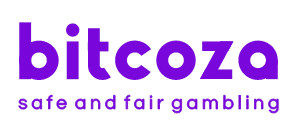Cryptocurrency casinos operate at the intersection of digital finance and gambling regulation. In spite of the anonymity often associated with blockchain technology, these platforms increasingly request identity verification from users. This seeming contradiction stems from complex legal requirements, security protocols, and operational necessities. The demand for personal documents raises questions about privacy in decentralized environments and highlights tensions between regulatory compliance and crypto’s pseudonymous foundations. Understanding this apparent paradox requires examining multiple converging factors.
Key Takeaways
- Regulatory compliance requires crypto casinos to implement KYC procedures and verify player identities to maintain operating licenses.
- Identity documents prevent money laundering by enabling platforms to track fund origins and flag suspicious transaction patterns.
- Age verification through government-issued documentation prevents underage gambling and protects vulnerable users.
- Identity verification establishes clear account ownership, aiding in account recovery and preventing unauthorized access.
- KYC protocols build trust by ensuring platform legitimacy, deterring fraud, and supporting fair gameplay.
The Regulatory Framework Behind Crypto Gambling
As cryptocurrency gambling continues to gain prominence globally, regulatory frameworks have evolved to address this unique intersection of digital finance and gaming entertainment. Legitimate crypto casinos must secure operational licenses from established regulatory authorities such as the Malta Gaming Authority or Curacao eGaming to demonstrate compliance with industry standards.
These crypto regulations vary significantly by jurisdiction – with Malta pioneering sandbox testing for blockchain gaming innovations while US platforms navigate complex state-level requirements. The UK Gambling Commission also imposes strict compliance measures for operators serving British players. The licensing significance extends beyond mere legality; it guarantees platforms implement mandatory KYC processes, AML protocols, and responsible gambling tools.
Non-compliance risks severe penalties, including market exclusion and operational shutdowns. This regulatory environment ultimately protects consumers while providing a structured setting for crypto gambling operations to function legitimately across compatible jurisdictions.
Preventing Money Laundering in Digital Currency Transactions
Vigilance forms the cornerstone of anti-money laundering efforts within cryptocurrency gambling platforms. These operations deploy sophisticated transaction monitoring systems that map blockchain patterns and flag anomalous activity that might indicate money laundering through digital currency channels.
Platforms implement multi-layered approaches including blockchain analysis tools that track fund origins, AI systems that detect behavioral deviations, and automated flagging of transaction spikes. Regulatory alignment guarantees compliance with FATF Travel Rule for transactions exceeding $1,000 and adherence to AMLD5 standards.
Risk-based frameworks allow casinos to apply improved due diligence for high-risk jurisdictions while maintaining tiered assessment protocols. This vigilance extends to monitoring privacy coins and cross-border transfers—essential measures that maintain platform integrity while fulfilling regulatory obligations without compromising the fundamental freedoms digital currency users value. Statistical evidence underscores the urgency of these measures, as criminals laundered approximately $8.6 billion in cryptocurrency in 2021 alone.
Age Verification: Protecting Vulnerable Users
Age verification mechanisms represent a foundational pillar of regulatory compliance for cryptocurrency casinos operating in today’s digital environment. Platforms implement these controls to prevent underage gambling, with statistics indicating 26% of UK minors already engage in gambling activities. Robust identity validation through government-issued documentation guarantees adherence to age restrictions across jurisdictional boundaries. Popular streaming platforms like Kicks now require ID verification for gambling content to protect users as young as 13 from accessing adult content.
| Verification Approach | Regulatory Benefit | User Impact |
|---|---|---|
| Pre-deposit KYC | Prevents underage access | Creates entry barrier |
| Digital ID solutions | Minimizes data exposure | Streamlines verification |
| Cross-document validation | Reduces identity fraud | Improves security |
Platforms failing to implement proper age verification face significant penalties, with UK operators incurring over £200 million in fines during 2023. User education regarding verification necessity helps promote compliance while simultaneously protecting vulnerable populations from gambling-related harms.
Ensuring Account Security and Ownership
Crypto casinos require identity verification as a critical defense against the growing threat of identity theft in digital gambling environments. Legitimate identification establishes clear ownership parameters that become vital during account recovery processes when users lose access to their wallets or accounts. These security protocols create verifiable links between physical identities and digital assets, enabling platforms to restore access to rightful owners while preventing unauthorized control of gambling funds. The implementation of two-factor authentication alongside identity verification creates a robust security framework that significantly reduces unauthorized access risks.
Identity Theft Protection
As online gambling platforms merge with cryptocurrency technology, identity theft protection becomes a critical consideration for users of crypto casinos. The verification requirements implemented by these platforms serve as a frontline defense against identity fraud that targets high-value accounts.
When submitting documentation, users should verify that platforms employ robust encryption protocols for data transmission and storage. Legitimate crypto casinos implement multi-layered security systems that compartmentalize personal data access, preventing unauthorized exposure of sensitive information. Implementing end-to-end encryption ensures that personal and payment details remain protected from interception during transmission between user devices and casino servers.
Users are advised to examine a platform’s data retention policies before submission. Reputable services typically minimize storage duration and scope of personal data to crucial verification elements only. This approach reduces vulnerability surfaces for potential data breaches while maintaining necessary compliance with regulatory frameworks governing online gambling operations.
Account Recovery Options
When cryptocurrency casino accounts face compromise or users lose access credentials, robust recovery mechanisms become essential for maintaining both security and ownership. Crypto platforms implement identity verification systems that triangulate user documentation against blockchain data, creating verifiable recovery pathways when standard access fails.
This account recovery infrastructure relies on cross-referencing government-issued identification with pseudonymous wallet addresses, establishing irrefutable ownership links. During disputes or technical failures, these verification protocols validate rightful account control while preventing unauthorized access attempts. Documentation bridges the gap between anonymous blockchain transactions and real-world identity. Utilizing hardware wallets for offline key storage can significantly reduce the risk of losing access to your crypto casino accounts.
Standardized user verification procedures streamline access restoration processes including password resets and wallet reconnection, particularly for high-value accounts. While privacy-conscious users may resist documentation requirements, these processes ultimately protect digital assets against sophisticated theft attempts and provide clear resolution mechanisms for contested accounts.
Regional Compliance: Navigating Global Gambling Laws
Crypto casino operators face a complex jurisdictional patchwork that varies dramatically from Malta’s strict MGA requirements to Curacao’s more lenient oversight. This regulatory fragmentation creates significant challenges for platforms serving global customers who must simultaneously satisfy KYC standards across multiple territories. Cross-border identity verification necessitates sophisticated technical solutions that can authenticate documents from diverse regions while maintaining compliance with contradictory requirements from authorities like the UK Gambling Commission, Japan’s FSA, and Ontario’s AGCO. Operators must carefully navigate regulatory concerns related to cryptocurrency use, which often vary significantly by jurisdiction and can impact whether identity documents are required at all.
Jurisdictional Patchwork Challenges
The global terrain of crypto gambling regulation presents operators with a complex jurisdictional patchwork that defies simple compliance solutions. Jurisdictional subtleties create operational barriers as platforms navigate contradictory laws—from Australia’s credit card bans to South Korea’s criminal penalties, alongside Malta’s permissive licensing frameworks.
These regulatory disparities force crypto casinos into difficult positions: implement rigorous identity verification to satisfy multiple authorities or risk substantial penalties including license revocation. The conflict between blockchain’s essential anonymity and mandatory KYC requirements creates fundamental tensions for operators. Failure to comply with these requirements can result in severe legal consequences for cryptocurrency casino operators.
VPN usage further complicates enforcement, as users circumvent geographically-based restrictions. While Curacao and Malta offer clear licensing paths, most jurisdictions remain in regulatory gray areas, leaving platforms to reconcile incompatible compliance demands across borders without unified international standards.
Cross-Border Identity Verification
Maneuvering through the maze of cross-border identity verification requirements presents crypto casinos with unprecedented operational challenges as they attempt to satisfy conflicting international standards. Platforms must simultaneously adhere to KYC protocols established by entities like Malta Gaming Authority while meeting region-specific frameworks including GDPR in Europe and NGB in South Africa. The varying legal status of crypto casinos across different countries creates additional compliance complexities for operators who must adapt their verification procedures accordingly.
These operators continuously balance jurisdictional alignment with data localization compliance, implementing verification systems that accommodate diverse regulatory thresholds. Age verification presents particular complexity as legal gambling ages vary from 18 to 21 across territories. The technical infrastructure must support real-time cross-referencing against international sanctions lists while maintaining responsible gambling protocols. Crypto casinos employing sophisticated verification technology gain competitive advantage in steering through this patchwork of cross-border regulations, allowing seamless operation while maintaining compliance with demanding international standards.
Building Trust in a Decentralized Environment
While blockchain technology promises anonymity and decentralization, establishing trust in crypto casinos requires balancing these features with regulatory compliance and user protection mechanisms. Verified identities form the cornerstone of decentralized trust by deterring fraud, preventing collusion, and eliminating bot activity that undermines fair gameplay. Properly implemented KYC procedures help combat money laundering activities that plague unregulated gambling platforms.
KYC implementation signals operational legitimacy, distinguishing reputable platforms from questionable alternatives. This verification infrastructure creates auditable records that aid in dispute resolution while enabling operators to fulfill social responsibility obligations regarding problem gambling. User confidence increases when platforms implement transparent verification processes that demonstrate regulatory compliance without compromising core blockchain benefits.
The documentation of player identities ultimately protects both operators and users—securing payment authenticity, enabling account recovery mechanisms, and creating accountability frameworks that benefit legitimate participants in decentralized gaming ecosystems.
Financial Safety and Transaction Monitoring
Financial safety in cryptocurrency casinos hinges critically on robust identity verification protocols that promote effective transaction monitoring. These platforms implement identity verification processes not merely as bureaucratic hurdles but as crucial safeguards that protect both the operator and users from financial malfeasance.
Crypto casinos must balance financial compliance requirements with user privacy concerns, employing sophisticated systems that verify identities while minimizing unnecessary data exposure. Through systematic transaction security measures, these platforms can detect suspicious patterns indicative of money laundering or fraud without compromising the pseudonymous nature of cryptocurrency transactions. User safety remains paramount as identity verification helps prevent unauthorized access to accounts and funds. Using two-step verification significantly strengthens this protection by requiring an additional authentication method beyond passwords.
This delicate balance between regulatory adherence and preserving cryptocurrency’s freedom-oriented ethos represents one of the industry’s most significant ongoing challenges, requiring continuous technological innovation and policy refinement.
Technology Integration: Balancing Privacy With Compliance
The technological integration of identity verification systems within crypto casinos represents a complex balancing act between competing priorities. Modern platforms deploy sophisticated solutions that satisfy regulatory demands while preserving user sovereignty to the extent possible. Blockchain technology creates immutable records of all transactions, which provides a foundation for both compliance verification and user privacy protections.
| Privacy Measures | Compliance Challenges |
|---|---|
| Smart contract automation | Jurisdictional variability |
| Provably fair algorithms | KYC/AML implementation |
| Decentralized storage | Real-time monitoring requirements |
| Pseudonymous transactions | Document verification standards |
These technological frameworks allow platforms to implement privacy measures like SSL encryption and blockchain-based pseudonymity while addressing compliance challenges through automated document scanning and biometric authentication. The most successful implementations utilize open-source tools and tamper-resistant logging to build trust, simultaneously satisfying regulators’ demands for transparency and users’ expectations for data protection. This technological middle ground creates spaces where financial freedom coexists with necessary oversight.



